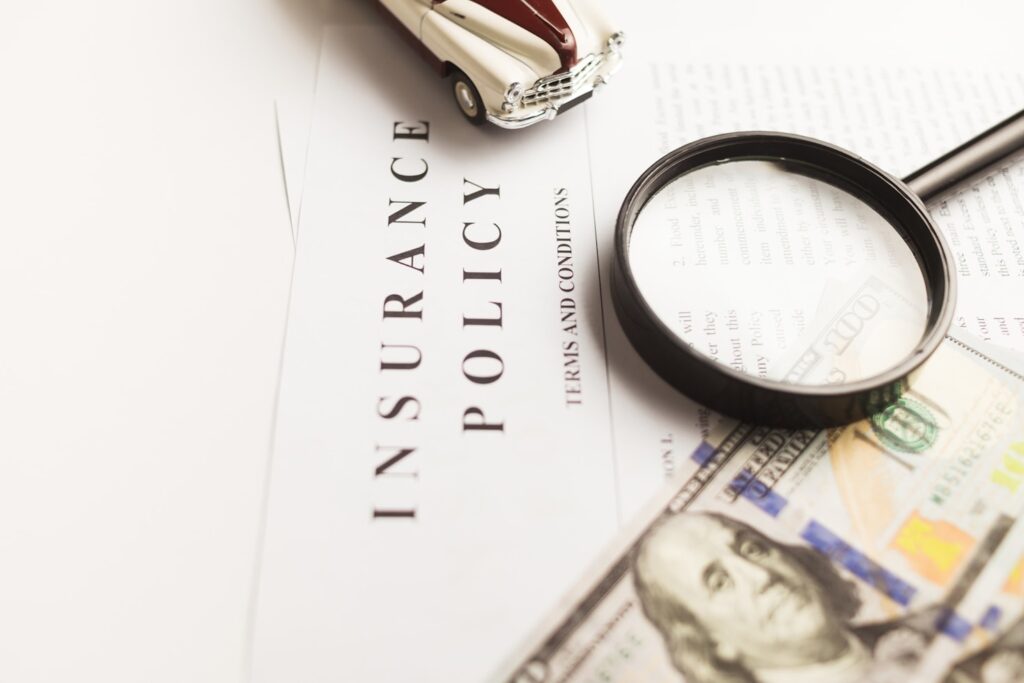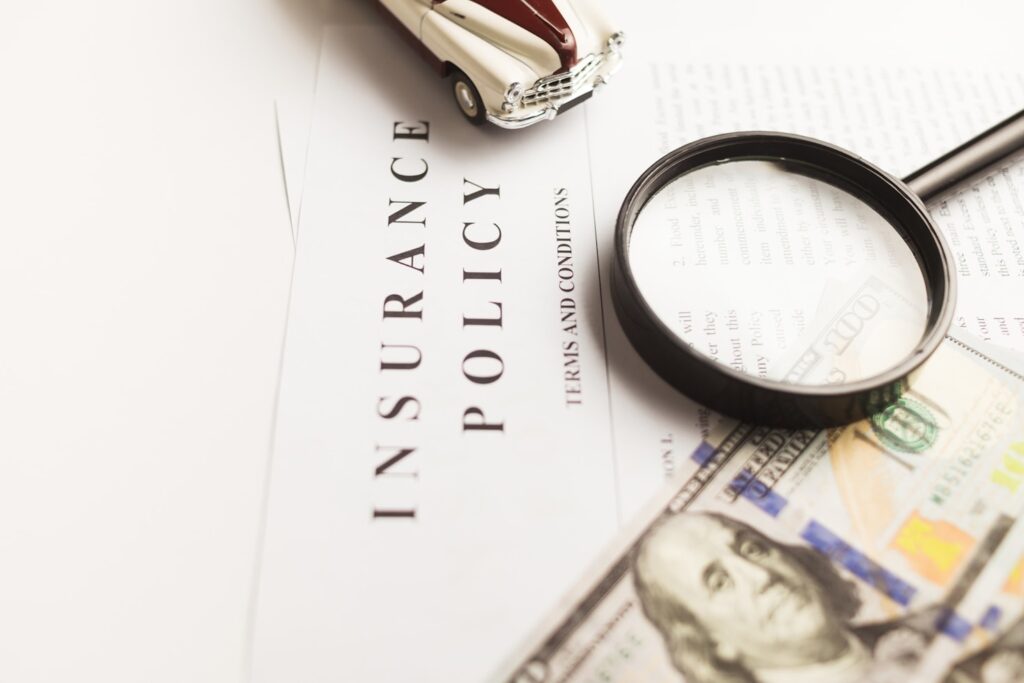Insurance News Hub
Your trusted source for clear, unbiased insurance guidance.
At Insurance News Blog, we provide the latest updates, news, and expert tips on all types of insurance — from car and health insurance to business, life, and travel coverage. Our goal is to help you make smart, informed decisions about your insurance needs.
Explore Our Insurance Categories
- Car Insurance – Learn about policies, coverage, and myths.
- Health Insurance – Understand deductibles, premiums, and benefits.
- Business Insurance – Protect your company with the right coverage.
- Life Insurance – Secure your family’s future with trusted plans.
- Travel Insurance – Stay protected while traveling abroad.
Latest Articles
Check out our most recent articles to stay informed:
- Top Insurance Trends to Watch (2026)
- How to Choose the Right Health Insurance Plan
- Life Insurance: Myths vs. Facts
- 13 Benefits from Your Insurance Coverage For Customer
- 100 Questions to Ask Your Insurance Provider (FAQ)
- What Do You Mean by Insurance
- 7 Fundamental Principles of Insurance: A Complete Guide
- What to Do After a Car Accident: Insurance Guide
- Is It Necessary to Hire a Lawyer After a Car Accident?
- Top 10 Mistakes to Avoid When Buying Insurance
- What Is a Deductible in Insurance? Explained Simply
- How Insurance Companies Determine Your Premium
- 7 Ways to Read and Understand an Insurance Policy
- How to Compare Insurance Quotes Online Like a Pro
- Latest Changes in U.S. Health Insurance Laws (2025)
- AI and Insurance: How Technology is Changing the Industry
- How to file a Medicare complaint or appeal a decision
- Commercial Tractor Insurance Policy Quotes: A Guide for Businesses and Farmers
- Government Subsidies and Insurance: What’s New?
- Insurance Scams to Watch Out for This Year (2025)
Insurance is one of the most essential financial tools in today’s world. From protecting your life and health to safeguarding your home, car, or business, insurance provides peace of mind by covering potential risks. While many people understand the basics of insurance, very few truly know how it works, why it is so important, and how to choose the right insurance policies for their needs.
In this detailed guide, we’ll explore everything you need to know about insurance—its meaning, types, benefits, and tips to make the most of your coverage.
What is Insurance?
Insurance is a contract between an individual (or business) and an insurance company. In this contract, the insurance company agrees to provide financial protection against specific risks in exchange for a premium.
For example:
-
If you buy health insurance, the company pays your medical expenses when you fall sick.
-
If you buy car insurance, the company compensates you for damages to your vehicle after an accident.
-
If you buy life insurance, your family receives financial support in case of your death.
In short, insurance spreads risk. Instead of facing a big loss alone, you pay a small amount (premium) regularly, and the insurance company covers the larger potential losses.
Why is Insurance Important?
The importance of insurance cannot be overstated. Here are some reasons why everyone should consider insurance:
-
Financial Protection – Insurance shields you from unexpected financial burdens such as hospital bills, accident costs, or property damage.
-
Peace of Mind – With insurance, you can live confidently without constant fear of financial setbacks.
-
Risk Management – Insurance helps businesses and individuals manage risks effectively.
-
Savings and Investment – Some insurance plans, like life insurance, also offer savings, wealth creation, and tax benefits.
-
Legal Compliance – Often, insurance is mandatory (e.g., motor insurance for vehicles).
The Main Types of Insurance
There are many types of insurance, each designed to cover specific needs. Let’s explore the major categories:
1. Life Insurance
Life insurance provides financial support to your family after your death. It ensures your loved ones are not burdened with financial stress in your absence.
Types of Life Insurance:
-
Term Life Insurance – Provides coverage for a fixed period (10, 20, or 30 years).
-
Whole Life Insurance – Offers lifelong coverage plus cash value benefits.
-
Endowment Plans – Provide both protection and savings.
-
Unit Linked Insurance Plans (ULIPs) – Combine insurance with investment opportunities.
2. Health Insurance
Health insurance covers medical expenses caused by illness, accidents, or injuries.
Benefits of Health Insurance:
-
Covers hospitalization costs
-
Provides cashless treatment at network hospitals
-
Covers critical illness and surgeries
-
Protects against rising medical costs
3. Auto Insurance (Car & Bike)
Auto insurance protects vehicle owners from financial losses due to accidents, theft, or natural disasters.
Types of Auto Insurance:
-
Third-Party Liability – Mandatory insurance that covers damages to others.
-
Comprehensive Insurance – Covers both third-party and own vehicle damage.
-
Collision Coverage – Specifically covers repair costs after accidents.
4. Home Insurance
Home insurance covers damages to your house due to fire, theft, earthquakes, or floods. It may also protect valuable possessions like jewelry and electronics.
5. Travel Insurance
Travel insurance protects travelers from risks like medical emergencies abroad, trip cancellations, lost baggage, or flight delays.
6. Business Insurance
Business insurance safeguards companies against risks like property damage, employee accidents, liability claims, or cyberattacks.
Examples include:
-
Professional Liability Insurance
-
Workers’ Compensation Insurance
-
Cybersecurity Insurance
7. Pet Insurance
Pet insurance covers veterinary expenses for pets in case of illness, surgery, or accidents.
How Does Insurance Work?
The process of insurance can be broken down into a few simple steps:
-
Buying a Policy – You buy an insurance policy by paying a premium.
-
Policy Terms – The policy outlines what is covered, exclusions, and conditions.
-
Claiming Insurance – When a loss happens, you submit a claim.
-
Settlement – The insurance company verifies your claim and compensates accordingly.
Example: If your car gets damaged in an accident, you file a claim with your car insurance provider. After verification, the insurer either pays for the repairs or reimburses you.
Benefits of Having Insurance
-
Protects Your Family’s Future – Life insurance ensures financial stability for your family after your death.
-
Reduces Stress During Emergencies – Health insurance helps you focus on recovery, not expenses.
-
Covers Big Financial Losses – Insurance absorbs major financial shocks like house fire or medical emergencies.
-
Encourages Savings & Investments – Some insurance policies offer long-term wealth building.
-
Business Continuity – Business insurance helps companies stay afloat after unexpected losses.
Factors to Consider Before Choosing Insurance
When selecting an insurance policy, keep these factors in mind:
-
Your Needs – Do you need life, health, auto, or travel insurance?
-
Coverage Amount – Ensure the sum insured is enough to cover your needs.
-
Premium Cost – Compare premiums and benefits before deciding.
-
Claim Settlement Ratio – Choose an insurer with a high claim settlement history.
-
Exclusions – Carefully check what the policy does not cover.
-
Add-Ons/Riders – Look for optional riders like critical illness cover or accidental death benefit.
Common Myths About Insurance
Many people avoid insurance due to myths and misconceptions. Let’s clear some of them:
-
Myth 1: Insurance is only for the wealthy.
-
Truth: Insurance is for everyone; even small policies can make a big difference.
-
-
Myth 2: Young and healthy people don’t need insurance.
-
Truth: Insurance is cheaper when bought early.
-
-
Myth 3: Insurance is a waste of money if no claim is made.
-
Truth: Insurance is like a safety net; you don’t regret not using it, but you’ll be thankful if needed.
-
-
Myth 4: Employer health insurance is enough.
-
Truth: Employer-provided plans may not cover all medical expenses or continue after you leave the job.
-
Global Insurance Trends
The insurance industry is constantly evolving with new technologies:
-
Digital Insurance (InsurTech): Online platforms make buying and managing policies easier.
-
AI in Insurance: Artificial Intelligence helps in fraud detection, faster claim settlement, and customer support.
-
Microinsurance: Affordable small-coverage insurance for low-income groups.
-
Health Wearables: Fitness trackers are being integrated with health insurance for discounts.
How to Save Money on Insurance
-
Compare Policies Online – Always research different insurance providers.
-
Choose Higher Deductibles – Opting for higher deductibles lowers premiums.
-
Bundle Policies – Buy car, home, and life insurance from one provider to get discounts.
-
Maintain a Good Credit Score – In some countries, a higher score reduces insurance costs.
-
Live a Healthy Lifestyle – Non-smokers often get cheaper life and health insurance.
Frequently Asked Questions (FAQs) on Insurance
1. What is the meaning of insurance?
Insurance is a financial agreement where you pay a premium to an insurer in exchange for protection against financial losses.
2. Which insurance is most important?
Health insurance and life insurance are the most important for individuals.
3. Is insurance mandatory?
Certain types of insurance, like motor insurance, are mandatory by law in many countries.
4. How much insurance coverage should I buy?
A general rule is to buy life insurance worth at least 10–15 times your annual income.
5. Can I have many insurance policies?
Yes, you can have many policies, and in some cases, you can claim from more than one insurer.
About Insurance News Blog
Founded in 2025, Insurance News Blog is dedicated to providing unbiased, easy-to-read content for individuals, families, and businesses. Whether you’re looking for insurance tips, product reviews, or breaking industry news, we’ve got you covered.
What type of insurance is best for a small business?
The “best” insurance for a small business depends on the industry, size, and risks involved. At a least, most businesses enjoy general liability insurance, which protects against lawsuits related to injuries, property damage, or advertising harm. If you have employees, workers’ compensation is often required by law.
Many small business owners also invest in professional liability insurance (for errors or negligence) and commercial property insurance to protect offices, equipment, and inventory.
Some insurers offer Business Owner’s Policies (BOPs) that bundle many coverages at a lower rate, making them a cost-effective choice. Always compare providers and tailor your coverage to your specific risks.
How do I choose between term and whole life insurance?
The choice comes down to your financial goals. Term life insurance is affordable and offers coverage for a fixed period (10, 20, or 30 years). It’s best for those who want protection during key financial obligations—like a mortgage or until children are financially independent.
Whole life insurance, on the other hand, lasts your entire lifetime and builds cash value, which can be borrowed against or used as savings. While more expensive, it provides long-term financial security and estate planning benefits. If affordability is a concern, term insurance works well. If building equity and lifelong coverage are priorities, whole life may be a better fit.
Which dental insurance plans cover orthodontics?
Not all dental insurance covers orthodontic treatment, such as braces or Invisalign. MetLife, Delta Dental, and Cigna are examples of providers that may include orthodontic coverage under certain plans. Typically, these benefits are included in premium or family plans, and often come with waiting periods and largest benefit limits.
Orthodontic coverage may also be age-restricted—many plans focus on children under 18. If orthodontics is important to you or your family, always check the plan details for terms like “orthodontia benefits.” Some employers also offer dental add-ons for orthodontics. Comparing plans and reviewing policy documents carefully is the best way to ensure your needs are covered.
Why do insurance premiums vary by age and gender?
Insurance premiums are based on risk assessment, and statistics show that age and gender can impact that risk. For example, younger drivers tend to pay higher auto insurance rates because they’re statistically more likely to be in accidents.
In health and life insurance, women often pay lower premiums because they typically live longer than men. However, in certain coverage types—like disability insurance—women may pay more due to higher claim rates.
While some regions are moving toward gender-neutral pricing, most insurers still rely on demographic factors like age, gender, and health history to calculate costs. The key is to compare providers and look for discounts that apply to your situation.
How do I find affordable home and auto insurance bundles?
Many insurance companies offer bundled packages that combine home and auto insurance into one policy. This often saves policyholders 10–25% compared to buying separate policies. To get the best deal, start by requesting quotes from many insurers and asking about bundle discounts.
Look for providers like State Farm, Allstate, and Progressive, which frequently advertise bundle savings. Make sure the policies cover your specific needs and don’t cut essential protections just to lower costs.
You can also save money by raising deductibles, improving home security, and maintaining a good driving record. Bundling is one of the easiest ways to reduce overall insurance expenses without compromising coverage.
Why Insurance News Blog?
-
Accessible, Trustworthy Advice Our mission is to simplify the complexities of insurance through unbiased product reviews, expert insights, and practical tips that help you stay protected and save more.
-
Comprehensive Coverage Across Categories From auto and health insurance to life, home, business, dental, renters, pet, travel, flood, and disability insurance—we cover it all. Navigate easily via our top menu or dive into our topic categories.
-
Global Audience, Local Insight Primarily serving readers across the USA, UK, Canada, and Australia, our content is crafted for anyone seeking clarity in complex insurance decisions. Insurance News Blog
Explore Our Latest Insights
Stay updated with our latest posts—from tech trends shaping policies to changes in U.S. health insurance laws:
-
Why Insurance Company Charges a Lower Premium for Female Life Compared to Males (Aug 17, 2025)
-
Cybersecurity Insurance for Small Business (Aug 17, 2025)
-
Blockchain in Insurance: Future of Risk Management (Aug 17, 2025)
-
AI and Insurance: How Technology is Changing the Industry (Aug 2, 2025)
-
Government Subsidies and Insurance: What’s New? — a deep dive into current U.S. policy shifts, like expanded ACA tax credits and Medicare changes.
Insurance is not just a financial product—it is a necessity in today’s unpredictable world. Whether it’s protecting your life, health, assets, or business, insurance gives you the confidence to face risks without fear. By understanding different types of insurance, comparing options, and choosing wisely, you can secure your financial future and live with peace of mind.
If you haven’t already, now is the time to check your needs and invest in the right insurance policy. Remember, insurance is not an expense—it’s an investment in security, protection, and peace of mind.








